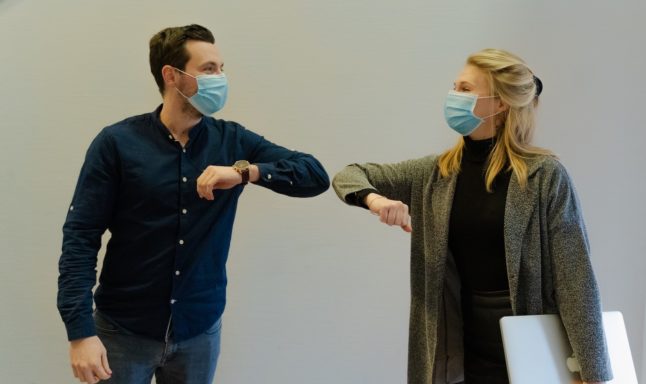From Monday, December 20th, working from home will again be mandatory in Switzerland.
The announcement was made as part of a wide range of new measures as the pandemic situation has again worsened in Switzerland.
READ MORE: Switzerland announces tight new Covid measures from Monday
One of the measures is a requirement to work from home, replacing the recommendation to work from home which had been in effect throughout much of the year.
How will the working from home obligation look?
While the specific nature of the working from home obligation has not yet been laid out by the Swiss government, it is expected to resemble the similar rule which was in place last winter.
Those rules required everyone who can work from home to do so all across Switzerland.
Put simply, anyone who can work from home is obligated to work from home under the new rules.
So while bakers will still be permitted to go into the bakery, most office jobs will now be done from home.
Where this would require a complex technical set up to be installed at home, workers will be permitted to head into the office.
Government employees are included and must work from home if possible.
‘Everyday goods’: Which shops can stay open Switzerland from Monday?
What if it is impossible?
If remote working is not an option, then masks will be mandatory inside buildings, as soon as several people are present in the same room, even if the safety distances of 1.5 metres can be respected.
Anyone wanting not to wear a mask must obtain a medical certificate from a doctor.
Regular testing may be required, although as yet there are no indications working from home will require people to be vaccinated or recovered from the virus.
But I don’t want to – can I just say no?
No. Not only is the law set in stone from Monday, but it is unlikely to be susceptible to a legal challenge.
Roger Rudolph, an expert in labour law at the University of Zurich, told 20 Minutes that suing your boss or the government was unlikely to get you very far.
“The passing of the working from home obligation is based on a solid legal basis,” he said.
Can I charge my boss for rent and electricity?
Nice try, but no.
While there will be some potential to deduct the money spent for tax – and your boss will need to provide for certain specialised equipment – you are still responsible for paying your rent and utilities.
READ: Why is Switzerland set to extend coronavirus measures?
What does the government say?
In making the announcement, the Swiss government said that it was important that everyone showed solidarity in the fight against the virus – including reducing contact as much as possible.
“If we want to reduce the number of contacts over the next few weeks, we have to do everything we can to make working from home really feasible,” Health Minister Alain Berset said.
Swiss President Guy Parmelin called the home office obligation a “decisive element in the slowdown in the number of cases.”



 Please whitelist us to continue reading.
Please whitelist us to continue reading.
Member comments